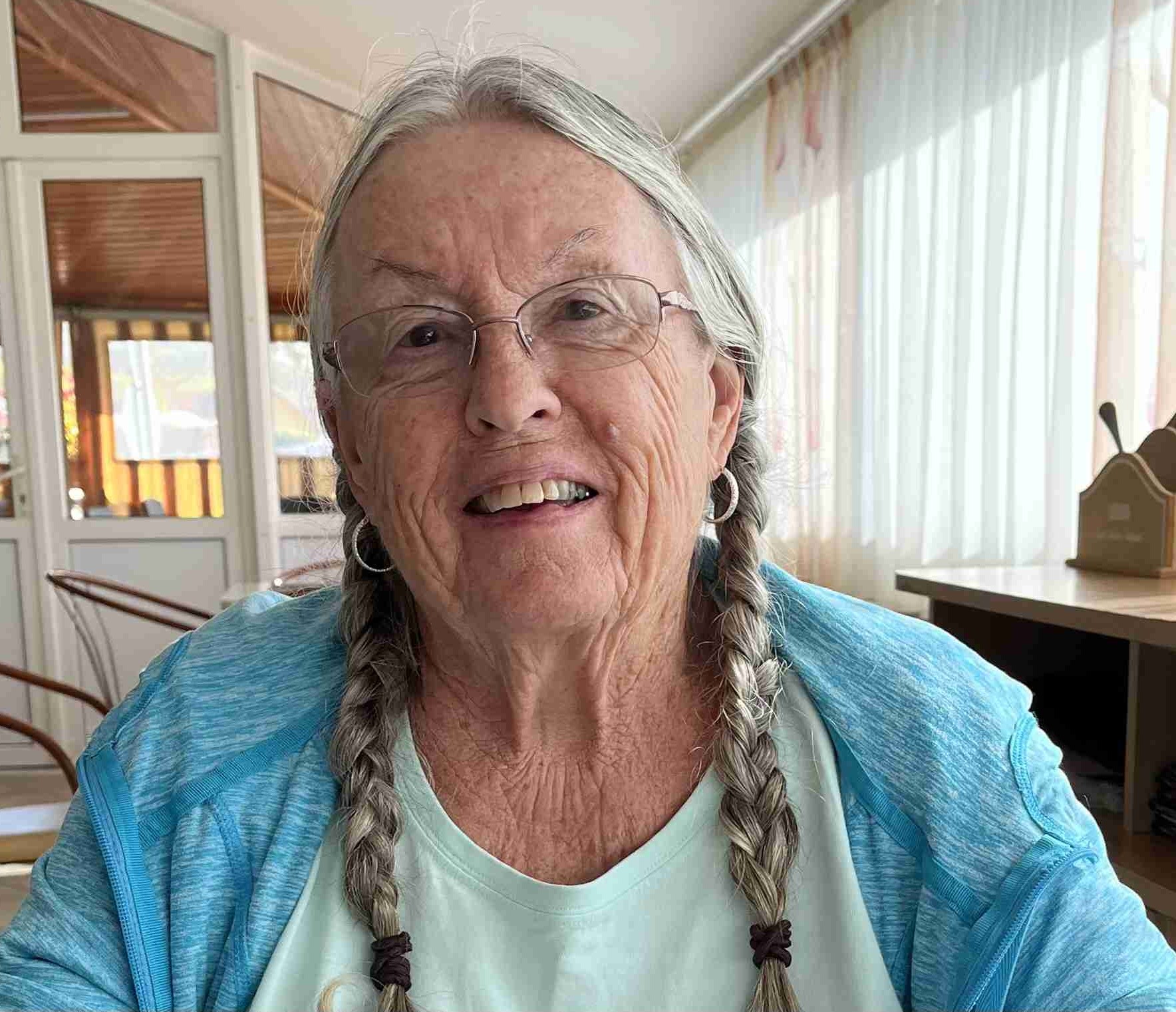cus
Presenter Name
Tracks
Workshop Level
Locations
Agenda
(1) = Workshop on First Floor (3) = Workshop on Third Floor
 August 10, 2025 08:00 - 5:00
August 10, 2025 08:00 - 5:00CIT Coordinator Course
Location: Grand Ballroom J/K
 August 10, 2025 08:00
August 10, 2025 08:00Mission-Critical Emotionally Intelligent De-Escalation for Crisis Response
Are you ready to become a master of crisis response? Dive into our dynamic and immersive course designed to equip you with the essential skills to handle high-stakes situations with confidence. This isn't just another training—it's an adventure into the heart of crisis management!
Course Highlights:
- Emotional Intelligence in Action: Discover the power of emotional intelligence and how it can transform your approach to crisis response. Learn to regulate your emotions and maintain your equilibrium even in the most volatile situations.
- Strategic Communication: Master the art of communication with techniques tailored for safety and de-escalation. Whether you're dealing with behavioral health crises or high-tension patrol engagements, you'll be prepared to handle it all.
- Real-World Scenarios: Engage in live analysis of real situations and participate in hands-on exercises that simulate the intensity of actual crisis calls. From traffic stops to SWAT callouts, you'll experience it all.
- Join us and become a critical user of de-escalation, emotional intelligence, and tactical practices. This course is not just about learning—it's about becoming a leader in crisis response. Are you ready to take the challenge?
Location: Grand Ballroom A/B
 Susie Kroll
Susie KrollKing County Sheriff's Office
 Matt Porter
Matt PorterMountlake Terrance PD
 August 10, 2025 09:00
August 10, 2025 09:00Hearing Voices Session #1
We are excited to announce a powerful and humbling experiential training exercise on understanding mental illness. This training, titled Hearing Voices, will allow you to participate in an audio exercise where you hear and experience what people with psychiatric disabilities face in their daily lives. Hearing Distressing Voices was developed and designed by Pat Deegan PhD., a clinical psychologist who personally lives with Schizophrenia and has experienced auditory hallucinations. Don't miss this unique opportunity to gain a deeper understanding of mental illness and improve your communication skills. Learn how to describe and identify the stigma and fear of Mental Illness; Identify and empathize with what it’s like to live and experience a serious mental illness, and list better ways to approach, communicate, and listen to someone experiencing a serious mental illness.
Location: Orange County Ballroom 1
 Thomas von Hemert
Thomas von Hemert August 10, 2025 12:00
August 10, 2025 12:00Hearing Voices Session #2
We are excited to announce a powerful and humbling experiential training exercise on understanding mental illness. This training, titled Hearing Voices, will allow you to participate in an audio exercise where you hear and experience what people with psychiatric disabilities face in their daily lives. Hearing Distressing Voices was developed and designed by Pat Deegan PhD., a clinical psychologist who personally lives with Schizophrenia and has experienced auditory hallucinations. Don't miss this unique opportunity to gain a deeper understanding of mental illness and improve your communication skills. Learn how to describe and identify the stigma and fear of Mental Illness; Identify and empathize with what it’s like to live and experience a serious mental illness, and list better ways to approach, communicate, and listen to someone experiencing a serious mental illness.
Location: Orange County Ballroom 1
 Thomas von Hemert
Thomas von Hemert August 10, 2025 12:00
August 10, 2025 12:00Registration and CIT International Store Open
Platinum/Marquis Foyer
 August 10, 2025 13:15
August 10, 2025 13:15Surviving Life On and After the Job - Wellness Training
When your shift ends do you allow your life to begin? As first responders you train to respond to the daily emergencies that come with the job, but what are you doing to ensure the safety and security of your personal life? Are you able to keep your personal life safe from the demands of your work? Are you giving so much to the public you serve that you forget to save anything for yourself? When you have nothing left for your own life, you may shut out your own families and friends and seek isolation. Try as you might, separating your work life from your personal life is much more complicated. There are healthy ways to deal with the stressors and trauma of the job by utilizing the support systems in your personal life and enjoying your life away from work. We will identify and discuss the fallout of the 24/7 mindset, and how cumulative stress is a prominent feature in one’s career. We will look at the prevalence, impact, and why this should be an area of concern for every agency. We will examine the stress factors, both professionally and personally, which put first responders at risk for PTSD and recognize compassion fatigue, burnout, vicarious trauma, and secondary trauma. We will look at ways that you can take control of your life and career and help others. Finally, we’ll identify and implement policies and procedures in your department to make a positive difference in the lives of your officers.
Location: Grand Ballroom A/B
 Nicholas Greco
Nicholas GrecoC3 Education and Research, Inc.
 Mark DiBona
Mark DiBonaProtecting The Guardian
 August 10, 2025 15:00
August 10, 2025 15:00Annual Advocacy Summit: The Foundation of CIT: Building an Inclusive Steering Committee
A common misunderstanding is that the 40-hour CIT training for law enforcement is the most critical aspect of the CIT community program. However, the heart of CIT is a robust and inclusive Steering Committee. Police training was just one of the factors that fueled the creation of the CIT program model. Creating a shared table where behavioral health professionals, people impacted by crisis services (families/peers), and law enforcement officers could share information and advocate for system change was equally as important. Shared problem identification and solution development is how CIT community programs transform communities. Far too many communities treat CIT as training, failing to implement a community program. This session will make sure you have the knowledge to prevent that mistake. Please join a group of current and former CITI board members who have built county, regional, or state program steering committees to better understand impactful approaches and mistakes to avoid. This session will highlight the critical role that advocates play within a CIT program.
Location: Orange County Ballroom 2-4
 Jenna Mehnert Baker
Jenna Mehnert BakerCIT International
 Joyce Campbell
Joyce Campbell
Matthew Moody
Advocates for Human Potential

Amy Durham

Kevin Fischer

Madonna Campbell

Yolanda Cruz

Paul Galdys
 August 11, 2025 06:15 - 6:45
August 11, 2025 06:15 - 6:45Yoga
LaJolla/Los Angeles

Suzanne Heath
Anaheim Police Department
 August 11, 2025 06:30 - 8:00
August 11, 2025 06:30 - 8:00Registration and CIT International Store Open
Platinum/Marquis Foyer
 August 11, 2025 07:00 - 8:00
August 11, 2025 07:00 - 8:00Breakfast
Platinum Ballroom and Exhibit Hall
 August 11, 2025 08:00 - 9:30
August 11, 2025 08:00 - 9:30General Session/Conference Opening and Award Ceremony
Location: Platinum Ballroom
 August 11, 2025 09:30 - 17:00
August 11, 2025 09:30 - 17:00Registration and CIT International Store Open
Platinum/Marquis Foyer
 August 11, 2025 09:30 - 10:00
August 11, 2025 09:30 - 10:00Break/Visit our Exhibitors
Exhibit Hall (Marquis Center/South Ballroom)
 August 11, 2025 10:00 - 11:00
August 11, 2025 10:00 - 11:00Broken Like Me: An Insider s Look at First Responder, Community and Self Care.
Track: Wellness
Workshop level: Beginner
Location: Platinum Ballroom 1-4
 Joseph Reid
Joseph ReidBroken People Peer Support
 August 11, 2025 10:00 - 11:00
August 11, 2025 10:00 - 11:00Is this thing on? Practical evaluation techniques to see if your CIT program is working for you
Track: Program Sustainability
Workshop level: Intermediate
Location: Marquis Ballroom Northwest
 Sabrina Taylor
Sabrina TaylorPhoenix Police Department
 August 11, 2025 10:00 - 11:00
August 11, 2025 10:00 - 11:00Veteran Centered Crisis Stabilization & Scene Management Strategies
Track: CIT Programming
Workshop level: Intermediate
Location: Grand Ballroom G/H
 Dave Weiner
Dave WeinerSecure Measures, LLC
 Piero D'Íngillo
Piero D'ÍngilloSecure Measures, LLC
 August 11, 2025 10:00 - 11:00
August 11, 2025 10:00 - 11:00Autism Response - How to make it better next time.
Track: IDD
Workshop level: Beginner
Location: Orange County Ballroom 3/4
 Michael Wells
Michael WellsAlbemarle County Virginia Police
 August 11, 2025 10:00 - 11:00
August 11, 2025 10:00 - 11:00Blending CIT, 911 and 988 to Unify Mississippi s Crisis Response
Track: 911/988
Workshop level: Intermediate
Location: Platinum Ballroom 7-10
 Linda Foley
Linda FoleyMississippi Department of Mental Health
 Ja'Quila Newsome
Ja'Quila NewsomeMississippi Department of Mental Health
 August 11, 2025 10:00 - 11:00
August 11, 2025 10:00 - 11:00Fort Worth Police CIT: Collaborating for Community Safety and Mental Wellness
Track: De-Escelation
Workshop level: Intermediate
Location: Grand Ballroom C/D
 Michael Rowell
Michael RowellFort Worth Police Department CIT
 Hjalmar Olmo
Hjalmar Olmo
 August 11, 2025 10:00 - 11:00
August 11, 2025 10:00 - 11:00How to Advance Crisis Services with Peer Support
Track: Certified Peers/Lived Experience
Workshop level: Beginner
Location: Grand Ballroom J/K4
 Tina-Marie Brown
Tina-Marie BrownSante Group - Eastern Shore Crisis Response
 Michelle Grigsby-Hackett
Michelle Grigsby-HackettSan+Y15te Group
 August 11, 2025 10:00 - 11:00
August 11, 2025 10:00 - 11:00The Aloha State: Moving Towards a Trauma-responsive Crisis Response System
Track: Crisis System Improvement
Workshop level: Beginner
Location: Grand Ballroom A/B
 Heather Lusk
Heather LuskHawaii Health and Harm Reduction Center
 Corbin Matsumoto
Corbin MatsumotoHonolulu Police Department
 Kumi Macdonald
Kumi MacdonaldNational Alliance on Mental Illness Hawaii Chapter
 August 11, 2025 10:00 - 11:00
August 11, 2025 10:00 - 11:00Expanding Crisis Response Training: Building a Skilled Workforce for Better Outcomes
Track: Training
Workshop level: Intermediate
Location: Marquis Ballroom Northeast
 Meghan Taft
Meghan TaftWayne State University School of Social Work
 Melinda Holliday
Melinda HollidayWayne State University School of Social Work
 Amy Watson
Amy WatsonWayne State University School of Social Work
 August 11, 2025 10:00 - 11:30
August 11, 2025 10:00 - 11:30Developing a Youth CIT Program
Track: Youth
Workshop level: Intermediate
Location: Orange County Ballroom 1/2
 Bobby Tanyer
Bobby TanyerWestmoreland County BHDS Office
 Devon Chianos
Devon Chianos Nikki Weigand
Nikki WeigandNAMI Keystone
 August 11, 2025 10:00 - 11:00
August 11, 2025 10:00 - 11:00Collaborative Response: Roles of Law Enforcement and Mobile Crisis in Mental Health Calls
Track: Co-Response
Workshop level: Beginner
Location: Grand Ballroom E
 Ryan Mattson
Ryan MattsonConnections Health Solutions
 Erin Taylor
Erin TaylorGallatin County Sheriff's Office
 August 11, 2025 10:00 - 11:00
August 11, 2025 10:00 - 11:00Advanced Topics in Psychiatric Diagnoses and Medications
Track: Behavioral Health
Workshop level: Advanced
Location: Grand Ballroom F
 William Enochs
William EnochsBurrell Behavioral Health
 August 11, 2025 11:00 - 12:30
August 11, 2025 11:00 - 12:30Lunch On Your Own
 August 11, 2025 12:30 - 13:30
August 11, 2025 12:30 - 13:30General Session: Keynote Speaker: Mr. Brian Cuban
Location: Platinum Ballroom
 August 11, 2025 13:30 - 14:00
August 11, 2025 13:30 - 14:00Break/Visit our Exhibitors
Location: Marquis Ballroom Center/South
 August 11, 2025 14:00 - 15:30
August 11, 2025 14:00 - 15:30A Strategic Pause: How Crisis Intervention Saved a Life
Track: De-Escelation
Workshop level: Beginner
Location: Marquis Ballroom Northwest
 Donald Anderson
Donald AndersonSan Francisco Police Department
 Elizabeth Prillinger
Elizabeth PrillingerSan Francisco Police Department
 August 11, 2025 14:00 - 15:30
August 11, 2025 14:00 - 15:30Question, Persuade, Refer (QPR)
Track: Training
Workshop level: Beginner
Location: Platinum Ballroom 1-4
 Lance Dardeen
Lance DardeenIMPD
 Kimble Richardson
Kimble RichardsonCommunity Health Network
 August 11, 2025 14:00 - 15:30
August 11, 2025 14:00 - 15:30Gaps, Barriers, and Challenges in Substance Use/Abuse Assessment and Treatment for Adults with Mild-Borderline Intellectual Disability
Track: IDD
Workshop level: Intermediate
Location: Grand Ballroom A/B
 Hilario Vazquez
Hilario VazquezSober State, LLC
 August 11, 2025 14:00 - 15:30
August 11, 2025 14:00 - 15:30An Innovative Continuum for Sustainable Police Mental Health Partnerships: Prevention, Response, and Enhanced Engagement
Track: Co-Response
Workshop level: Intermediate
Location: Grand Ballroom F
 Mirelle L'Estrange
Mirelle L'EstrangeYork Regional Police
 Sarah Amon
Sarah AmonYork Regional Police
 August 11, 2025 14:00 - 15:30
August 11, 2025 14:00 - 15:30Beyond Training: Advancing Crisis System Transformation with CIT
Track: Crisis System Improvement
Workshop level: Intermediate
Location: Orange County Ballroom 3/4
 Andrea Smith
Andrea SmithDetroit Wayne Integrated Health Network
 Tonya Leonard
Tonya LeonardDetroit Police Department
 James White
James WhiteDetroit Wayne Integrated Health Network
 Kristina Morgan
Kristina Morgan August 11, 2025 14:00 - 15:30
August 11, 2025 14:00 - 15:30A to Z: From Program Development to Evaluation Framework for Statewide Jail In-Reach
Track: CIT Programming
Workshop level: Advanced
Location: Grand Ballroom G/H
 Carol McVey
Carol McVeyDBHDD
 Miranda Baumann
Miranda BaumannGA Department of Behavioral Health and Disabilities
 August 11, 2025 14:00 - 15:30
August 11, 2025 14:00 - 15:30Strength Under Pressure: Leading Employees Through Acute Trauma and Chronic Exposure to Stress
Track: Wellness
Workshop level: Intermediate
Location: Grand Ballroom E
 Wayne Handley
Wayne HandleyBuena Vista Police Department
 August 11, 2025 14:00 - 15:30
August 11, 2025 14:00 - 15:30CIT Connects: Maximizing Your Experience at the CIT International Conference
Track: CIT Programming
Workshop level: Beginner
Location: Grand Ballroom C/D
 Yolanda Cruz
Yolanda CruzLEAD Trainers
 August 11, 2025 14:00 - 15:30
August 11, 2025 14:00 - 15:30Crisis Response in Schools: Managing protocols and the human experience
Track: Youth
Workshop level: Beginner
Location: Platinum Ballroom 7-10
 Denise Toro
Denise ToroHumble ISD
 Tye Hobbs
Tye HobbsHumble ISD

Avi Frilot
 August 11, 2025 14:00 - 15:30
August 11, 2025 14:00 - 15:30Congratulations! You're a CIT Coordinator, now what?!
Track: Program Sustainability
Workshop level: Beginner
Location: Marquis Ballroom Northeast
 Habsi Kaba
Habsi KabaEleventh Judicial Circuit Criminal Mental Health Project, CIT Program
 August 11, 2025 14:00 - 15:30
August 11, 2025 14:00 - 15:30Intoxication, Withdrawal, and Treatment of Substance Use Disorders
Track: Behavioral Health
Workshop level: Beginner
Location: Orange County Ballroom 1/2
 Sarah Heming
Sarah HemingCommunity Health Network
 Chrissy Hopp
Chrissy HoppCommunity Health Network
 August 11, 2025 14:00 - 15:30
August 11, 2025 14:00 - 15:30Sharing Your Story with Law Enforcement: Building engagement and trust
Track: Certified Peers/Lived Experience
Workshop level: Beginner
Location: Grand Ballroom J/K
 Daryn Nelsen-Soza
Daryn Nelsen-SozaNAMI
 August 11, 2025 15:30 - 16:00
August 11, 2025 15:30 - 16:00Break/Visit our Exhibitors
Location: Marquis Ballroom Center/South
 August 11, 2025 16:00 - 17:00
August 11, 2025 16:00 - 17:00Leveraging Advocates and the Voice of Lived Expertise in CIT
Track: Certified Peers/Lived Experience
Workshop level: Beginner
Location: Grand Ballroom J/K
 Shannon Scully
Shannon ScullyNAMI
 Tony Ohlhausen
Tony OhlhausenNAMI Illinois
San Jacinto NAMI
 Nicole Krapil
Nicole Krapil August 11, 2025 16:00 - 17:00
August 11, 2025 16:00 - 17:00Strengthening CIT Steering Committees: Engaging State Councils on Developmental Disabilities and IDD Agencies
Track: IDD
Workshop level: Beginner
Location: Grand Ballroom A/B
 Yolanda Cruz
Yolanda CruzLEAD Trainers
 August 11, 2025 16:00 - 17:00
August 11, 2025 16:00 - 17:00Thinking Outside the Box in a CIT Program
Track: Crisis System Improvement
Workshop level: Intermediate
Location: Platinum Ballroom 1-4
 Kailee Evans
Kailee EvansHigh Desert CIT and Oregon Department of Corrections
 Ridg Medford
Ridg MedfordCIT International/GOBHI (Greater Oregon Behavioral Health Initiative
 August 11, 2025 16:00 - 17:00
August 11, 2025 16:00 - 17:00The Sucker Punch: How Trauma and Three Suicide Attempts Shaped My Journey as a Therapist and Crisis Responder
Track: Wellness
Workshop level: Beginner
Location: Platinum Ballroom 7-10
 Diana Guzman
Diana GuzmanLife is Now Counseling, LLC
 August 11, 2025 16:00 - 17:00
August 11, 2025 16:00 - 17:00Two Knocks on the Door: From Devastation to a New Alliance
Track: Certified Peers/Lived Experience
Workshop level: Beginner
Location: Marquis Ballroom Northeast
 Adina Peyton
Adina PeytonGetting Real About Mental Illness (GRAMI)
 August 11, 2025 16:00 - 17:00
August 11, 2025 16:00 - 17:00Mission-Critical Emotionally Intelligent De-Escalation in Crisis Response
Track: De-Escelation
Workshop level: Intermediate
Location: Grand Ballroom E
 Susie Kroll
Susie KrollKing County Sheriff's Office
 Matt Porter
Matt PorterMountlake Terrance PD
 August 11, 2025 16:00 - 17:00
August 11, 2025 16:00 - 17:00Crisis Care on Wheels: Transforming Mobile Response to a Person-Centered Approach
Track: Co-Response
Workshop level: Intermediate
Location: Grand Ballroom G/H
 Luciana Beltran
Luciana BeltranWestcare/ The Village South
 August 11, 2025 16:00 - 17:00
August 11, 2025 16:00 - 17:00Brain Injury & Crisis: Partnering for Effective Interventions, Improving Outcomes, and Building Community Resilience
Track: Behavioral Health
Workshop level: Beginner
Location: Orange County Ballroom 1/2
 Anastasia Edmonston
Anastasia EdmonstonMaryland Department of Health, Behavioral Health Administration
 August 11, 2025 16:00 - 17:00
August 11, 2025 16:00 - 17:00See Spot Serve: Incorporating Therapy Canines in Crisis Response Programming & Deployment
Track: CIT Programming
Workshop level: Brginner
Location: Marquis Ballroom Northwest
 Jennifer Wooldridge
Jennifer WooldridgeIllinois Law Enforcement Training and Standards Board
 Jerry Roman
Jerry RomanCook County Sheriff - Tails of Redemption

Curtis Schwartzkopf
 John Keigher
John Keigher August 11, 2025 16:00 - 17:00
August 11, 2025 16:00 - 17:00Ten Steps to Successful Scenario-Based CIT Training
Track: Training
Workshop level: Beginner
Location: Grand Ballroom F
 Lisa Fitzgerald
Lisa FitzgeraldThomas Jefferson Area CIT
 August 11, 2025 16:00 - 17:00
August 11, 2025 16:00 - 17:00Partners in Progress: Readying Crisis Response Programs for Evaluation
Track: Program Sustainability
Workshop level: Beginner
Location: Grand Ballroom C/D
 Sean Justice
Sean Justice Dr. Rebecca Neusteter
Dr. Rebecca NeusteterUniversity of Chicago Health Lab
 Elliott Jones
Elliott Jones
Ernest Stevens
 August 11, 2025 16:00 - 17:00
August 11, 2025 16:00 - 17:00Creating and Implementing a 911 Diversion Program
Track: 911/988
Workshop level: Intermediate
Location: Orange County Ballroom 3/4
 Frank Gonzalez
Frank GonzalezOrange County Sheriff
 Melissa Losoya
Melissa LosoyaOrange County Sheriff

Leticia (Letty) Luna-Pinto
Health Care Agency
 August 11, 2025 17:30 - 21:30
August 11, 2025 17:30 - 21:30Networking Event
Location: House of Blues
 August 12, 2025 06:30 - 7:00
August 12, 2025 06:30 - 7:00Yoga
LaJolla/Los Angeles

Suzanne Heath
Anaheim Police Department
 August 12, 2025 07:00 - 8:00
August 12, 2025 07:00 - 8:00Breakfast
Platinum Ballroom and Exhibit Hall
 August 12, 2025 07:00 - 8:00
August 12, 2025 07:00 - 8:00Registration and CIT International Store Open
Platinum/Marquis Foyer
 August 12, 2025 08:00 - 9:30
August 12, 2025 08:00 - 9:30General Session & Keynote Speaker: Dr. Victoria Harris
Location: Platinum Ballroom
 August 12, 2025 09:30 - 17:00
August 12, 2025 09:30 - 17:00Registration and CIT International Store Open
Platinum/Marquis Foyer
 August 12, 2025 09:30 - 10:00
August 12, 2025 09:30 - 10:00Break/Visit our Exhibitors
Location: Marquis Ballroom Center/South
 August 12, 2025 10:00 - 11:30
August 12, 2025 10:00 - 11:30The World Through the Eyes of People in Crisis: How Neuroscience Enhances Interventions
Track: De-Escelation
Workshop level: Intermediate
Location: Grand Ballroom E
 Rick Griffin
Rick GriffinNeuro Leadership Academy
 August 12, 2025 10:00 - 11:30
August 12, 2025 10:00 - 11:30Conundrum of Care: Police and Mental Health Providers Unite to Tackle High-Utilizer Youth Cases
Track: Youth
Workshop level: Intermediate
Location: Marquis Ballroom Northwest
 Jessica Michael
Jessica MichaelNationwide Children's Hospital
 Michael Voorhis
Michael VoorhisCity of Columbus Division of Police
 August 12, 2025 10:00 - 11:30
August 12, 2025 10:00 - 11:30Traumatic Brain Injury (TBI) Awareness & Wellness-TBI Education and Resources for Officers & Citizens
Track: Behavioral Health
Workshop level: Intermediate
Location: Grand Ballroom C/D
 Anastasia Edmonston
Anastasia EdmonstonMaryland Department of Health, Behavioral Health Administration
 Hanna Rodriguez
Hanna RodriguezMaryland Department of Health, Behavioral Health Adminstration
 Martin Kerrigan
Martin KerriganMaryland Department of Health, Behavioral Health Adminstration
 August 12, 2025 10:00 - 11:30
August 12, 2025 10:00 - 11:30From New Year's to New Paws.
Track: CIT Programming
Workshop level: Beginner
Location: Orange County Ballroom 3/4
 Edward Dobleman
Edward DoblemanCIT-NJ Center of Excellence Program
 Janice Campbell
Janice CampbellTri-State Canice Response Team
 Kimberly Matos
Kimberly MatosCIT-NJ State 9-1-1 Coordinator
 James Guidry
James Guidry August 12, 2025 10:00 - 11:30
August 12, 2025 10:00 - 11:30More Than a Feeling
Track: Wellness
Workshop level: Beginner
Location: Grand Ballroom A/B
 Mark DiBona
Mark DiBonaProtecting The Guardian
 August 12, 2025 10:00 - 11:30
August 12, 2025 10:00 - 11:30Best Practice in Emergency Response for People with Intellectual and Developmental Disabilities (IDD) and Other Diverse Populations
Track: IDD
Workshop level: Intermediate
Location: Grand Ballroom F
 Mary Shehan, MS, QSE
Mary Shehan, MS, QSEMichigan Developmental Disabilities Council
 Stacie Rulison, MS, M.Ed., BCBA
Stacie Rulison, MS, M.Ed., BCBAConsultant
 Robert Spruce
Robert SpruceDetroit Wayne Integrated Health Network
 August 12, 2025 10:00 - 11:30
August 12, 2025 10:00 - 11:30CITI Public Policy Committee: Strategies to Advance Officer Wellness
Track: Program Sustainability
Workshop level: Beginner
Location: Grand Ballroom G/H
 Jenna Mehnert Baker
Jenna Mehnert BakerCIT International
 August 12, 2025 10:00 - 11:30
August 12, 2025 10:00 - 11:30Integrating the Core Elements of CIT into the Development of an Innovative Comprehensive Crisis System of Care Between- Perspectives from Law Enforcement and Behavioral Health
Track: Crisis System Improvement
Workshop level: Intermediate
Location: Orange County Ballroom 1/2
 Cindy Gipson, Ph.D.,
Cindy Gipson, Ph.D.,Mobile Police Department and AltaPointe Health
 Corporal Nathaniel McCarty
Corporal Nathaniel McCartyMobile Police Department, City of Mobile
 August 12, 2025 10:00 - 11:30
August 12, 2025 10:00 - 11:30Developing a Comprehensive Crisis Continuum of Care: Tales from the Field
Track: 911/988
Workshop level: Beginner
Location: Platinum Ballroom 1/2
 Kristin Sauerbier
Kristin SauerbierPolicy Research Associates/SAMHSA GAINS Center

Kyle Mosack
 August 12, 2025 10:00 - 11:30
August 12, 2025 10:00 - 11:30Designing and Implementing a Train-The-Trainer CIT Program for the Ukrainian National Police
Track: Training
Workshop level: Advanced
Location: Grand Ballroom J/K
 Nicholas Greco
Nicholas GrecoC3 Education and Research, Inc.
 Alexandra Kitty Nelson
Alexandra Kitty NelsonPhoenix Training Ltd.
 August 12, 2025 10:00 - 11:30
August 12, 2025 10:00 - 11:30Development and Implementation of an Advanced Training Curriculum for Non-Law Enforcement Co-Responders (i.e. Clinicians, Peers, and other First Responders)
Track: Co-Response
Workshop level: Advanced
Location: Marquis Ballroom Northeast
 Kandace Miller
Kandace MillerHighlands Community Services
 Chris Parks
Chris ParksHighlands Community Services
 August 12, 2025 11:30 - 13:00
August 12, 2025 11:30 - 13:00Networking Lunch
Platinum Ballroom and Exhibit Hall
 August 12, 2025 12:10 - 12:50
August 12, 2025 12:10 - 12:50Coin/Patch/Pin Swap
Location: Marquis Ballroom Center/South
 August 12, 2025 13:00 - 14:30
August 12, 2025 13:00 - 14:30Crisis Response at -40F: Partnering with Law Enforcement and Dispatch in Fairbanks, Alaska
Track: Crisis System Improvement
Workshop level: Intermediate
Location: Orange County Ballroom 1/2
 Brenda McFarlane
Brenda McFarlaneCity of Fairbanks
 Richard Sweet
Richard SweetFairbanks Police Department
 Kristi Merideth
Kristi MeridethFairbanks Emergency Communications Center
 Elizabeth Sewell
Elizabeth Sewell August 12, 2025 13:00 - 14:30
August 12, 2025 13:00 - 14:30From Crisis to Care: Enhancing Skills and Support for First Responders
Track: CIT Programming
Workshop level: Beginner
Location: Marquis Ballroom Northwest
 Nicholas Roos
Nicholas RoosPolicy Research Associates/SAMHSA GAINS Center
 Chanson Noether
Chanson NoetherPolicy Research Associates/SAMHSA GAINS Center

Kyle Mosack
 Kristin Sauerbier
Kristin SauerbierPolicy Research Associates/SAMHSA GAINS Center
 August 12, 2025 13:00 - 14:30
August 12, 2025 13:00 - 14:30After the 40 Hours: Building a Robust and Sustainable CIT Program
Track: Program Sustainability
Workshop level: Beginner
Location: Marquis Ballroom Northeast
 Emilie Smiley
Emilie SmileyNAMI Wisconsin
 August 12, 2025 13:00 - 14:30
August 12, 2025 13:00 - 14:30Patient Not Prisoner: How Crisis Intervention Teams Have Saved My Life
Track: Certified Peers/Lived Experience
Workshop level: Beginner
Location: Grand Ballroom G/H
 Melissa Owens
Melissa OwensPatient Not Prisoner
 August 12, 2025 13:00 - 14:30
August 12, 2025 13:00 - 14:30Advancing the Use of Psychiatric Advance Directives (PADs) in California s Crisis Response System
Track: CIT Programming
Workshop level: Intermediate
Location: Grand Ballroom C/D
 Kiran Sahota
Kiran SahotaConcepts Forward Consulting
 Flor Yousefian Tehrani
Flor Yousefian TehraniOrange County Healthcare Agency
 Isaiah Hicks
Isaiah HicksOrange County Sheriff's Department
 Christine Berryman
Christine Berryman August 12, 2025 13:00 - 14:30
August 12, 2025 13:00 - 14:30No Filters, No Jargon: Ask a Docs Anything About Mental Health and Evaluations
Track: Behavioral Health
Workshop level: Beginner
Location: Orange County Ballroom 3/4
 William Enochs
William EnochsBurrell Behavioral Health
 Jeanette Simmons
Jeanette SimmonsMissouri Department of Mental Health
 August 12, 2025 13:00 - 14:30
August 12, 2025 13:00 - 14:30ADEPT: Advanced De-escalation and Escalation Prevention Training
Track: De-Escelation
Workshop level: Beginner
Location: Grand Ballroom E
 Julie Collinson, MA, NCC, LPC
Julie Collinson, MA, NCC, LPCOregon DPSST
 Jason Ritter
Jason RitterClackamas County Sheriff's Office
 August 12, 2025 13:00 - 14:30
August 12, 2025 13:00 - 14:30Crisis Response and Intervention Training: How it Can Enhance Your CIT Program.
Track: Training
Workshop level: Beginner
Location: Grand Ballroom J/K
 Sabrina Fernandez
Sabrina FernandezInternational Association of Chief's of Police
 Michele Saunders
Michele SaundersCIT International
 Leigh Anne McKingsley
Leigh Anne McKingsleyThe Arcs National Center on Criminal Justice and Disability
 James Guidry
James Guidry August 12, 2025 13:00 - 14:30
August 12, 2025 13:00 - 14:30Fund Raising 101
Track: Program Sustainability
Workshop level: Intermediate
Location: Grand Ballroom A/B
 Suzanne Andriukaitis
Suzanne AndriukaitisCIT International
 August 12, 2025 13:00 - 14:30
August 12, 2025 13:00 - 14:30Tactical sensory training for resiliency and self regulation during critical incidents and chronic stress.
Track: Wellness
Workshop level: Beginner
Location: Grand Ballroom F
 Bonnie Eckman
Bonnie EckmanAM Healthcare
 August 12, 2025 13:00 - 14:30
August 12, 2025 13:00 - 14:30Preaching to the Choir: CIT Programs Work, So What s the Problem??
Track: Crisis System Improvement
Workshop level: Intermediate
Location: Platinum Ballroom 1/2
 Victoria Harris
Victoria HarrisNational Alliance on Mental Illness (NAMI)
 August 12, 2025 14:30 - 15:00
August 12, 2025 14:30 - 15:00Break/Visit our Exhibitors
Exhibit Hall (Marquis Center/South Ballroom)
 August 12, 2025 15:00 - 16:30
August 12, 2025 15:00 - 16:30Families In Focus in CIT
Track: Youth
Workshop level: Beginner
Location: Platinum Ballroom 9/10
 Lea Nagy
Lea NagyNami Humboldt
 August 12, 2025 15:00 - 16:30
August 12, 2025 15:00 - 16:30No More Lists: The Power of Post Crisis Navigation
Track: Crisis System Improvement
Workshop level: Intermediate
Location: Orange County Ballroom 1/2
 Kelly Kerrigan
Kelly KerriganMaricopa County Sheriff's Office
 Devon Gerard
Devon GerardMaricopa County Sheriff's Office

Frank Klin
 August 12, 2025 15:00 - 16:30
August 12, 2025 15:00 - 16:30Reimagining Incarceration and Law Enforcement's Understanding of Substance Use Disorder
Track: Behavioral Health
Workshop level: Beginner
Location: Grand Ballroom G/H
 Lisa M. Hall
Lisa M. HallGlory Girl Productions
 August 12, 2025 15:00 - 16:30
August 12, 2025 15:00 - 16:30Crawl, Walk, Run Your Way to Effective De-escalation Training
Track: De-Escelation
Workshop level: Beginner
Location: Grand Ballroom F
 Johanna Covault
Johanna CovaultMecklenburg County Public Health
 John Osborn
John OsbornMecklenburg County Public Health
 Nathan Phillips
Nathan PhillipsCharlotte Mecklenburg Police Department
 August 12, 2025 15:00 - 16:30
August 12, 2025 15:00 - 16:30The Critical Role of Crisis Receiving Centers & Peers in CIT Programs
Track: Certified Peers/Lived Experience
Workshop level: Intermediate
Location: Orange County Ballroom 3/4
 Nick Margiotta
Nick MargiottaCrisis System Solutions
 Jamie Pothast
Jamie PothastCommunity System Solutions
 August 12, 2025 15:00 - 16:30
August 12, 2025 15:00 - 16:30Dangerous Behavioral Indicators The Difference Between A Mental Health Crisis and Psychopathology
Track: CIT Programming
Workshop level: Advanced
Location: Grand Ballroom E
 Brian Peete
Brian PeeteRiley County Police Department
 Jeanette Borunda
Jeanette BorundaAlamogordo Police Department
 August 12, 2025 15:00 - 16:30
August 12, 2025 15:00 - 16:30Situational Awareness for Clinical Professionals
Track: Behavioral Health
Workshop level: Beginner
Location: Marquis Ballroom Northwest
 Brandon McKinney
Brandon McKinneyCMPD
 Vania Wimberly
Vania WimberlyCharlotte-Mecklenburg Police Department
 August 12, 2025 15:00 - 16:30
August 12, 2025 15:00 - 16:30Brains, Badges, and Burnout: Rethinking First Responder Wellbeing Through Neuroscience
Track: Wellness
Workshop level: Beginner
Location: Marquis Ballroom Northeast
 Rick Griffin
Rick GriffinNeuro Leadership Academy
 August 12, 2025 15:00 - 16:30
August 12, 2025 15:00 - 16:30And the Oscar Goes to: Working with professional actors to conduct standardized scenarios
Track: Training
Workshop level: Intermediate
Location: Grand Ballroom J/K
 Amy Watson
Amy WatsonWayne State University School of Social Work
 Michael Compton
Michael ComptonColumbia University College of Physicians & Surgeons
 Elisabeth Jackson
Elisabeth JacksonColumbia University
 En Fu
En Fu August 12, 2025 15:00 - 16:30
August 12, 2025 15:00 - 16:30We're on the Same Side! Working WITH the Police When a Loved One Needs Help
Track: Program Sustainability
Workshop level: Beginner
Location: Platinum Ballroom 1/2
 Raymond Griego
Raymond GriegoNAMI Orange County
 Dave Hill
Dave HillWestern Youth Services
 August 12, 2025 15:00 - 16:30
August 12, 2025 15:00 - 16:30Breaking Barriers: How Collaboration is Transforming Crisis Care in one Pennsylvania Region
Track: Crisis System Improvement
Workshop level: Intermediate
Location: Grand Ballroom A/B
 Sarah Lopez
Sarah LopezConnections Health Solutions
 Andrea Kepler
Andrea KeplerDauphin County
 Annie Strite
Annie StriteCumberland and Perry Counties
 August 12, 2025 15:00 - 16:30
August 12, 2025 15:00 - 16:30Sensory Implications when Responding to someone in Crisis with Developmental Disabilities
Track: IDD
Workshop level: Beginner
Location: Grand Ballroom C/D
 Yolanda Cruz
Yolanda CruzLEAD Trainers
 August 12, 2025 16:30 - 17:00
August 12, 2025 16:30 - 17:00Break/Visit our Exhibitors
Exhibit Hall (Marquis Center/South Ballroom)
 August 12, 2025 17:30 - 18:00
August 12, 2025 17:30 - 18:00Zumba
LaJolla/Los Angeles

Suzanne Heath
Anaheim Police Department
 August 13, 2025 06:30 - 7:00
August 13, 2025 06:30 - 7:00Zumba
LaJolla/Los Angeles

Suzanne Heath
Anaheim Police Department
 August 13, 2025 07:00 - 8:00
August 13, 2025 07:00 - 8:00Breakfast of Hope
Platinum Ballroom and Exhibit Hall
 August 13, 2025 07:00 - 8:00
August 13, 2025 07:00 - 8:00Registration and CIT International Store Open
Platinum/Marquis Foyer
 August 13, 2025 08:00 - 9:30
August 13, 2025 08:00 - 9:30General Session & Keynote Speaker: Mr. Kevin Fischer
Location: Platinum Ballroom
 August 13, 2025 09:30 - 13:00
August 13, 2025 09:30 - 13:00Registration and CIT International Store Open
Platinum/Marquis Foyer
 August 13, 2025 09:30 - 10:00
August 13, 2025 09:30 - 10:00Break/Visit our Exhibitors
Location: Marquis Ballroom Center/South
 August 13, 2025 10:00 - 11:00
August 13, 2025 10:00 - 11:00You Good? Two words that saved my life and stopped me from suicide.
Track: Wellness
Workshop level: Beginner
Location: Grand Ballroom F
 Pete Wiesner
Pete WiesnerStreet Smarts VR
 August 13, 2025 10:00 - 11:00
August 13, 2025 10:00 - 11:00But Wait, There’s More: Advance CIT Courses and Programming to Continue Growth and Development
Celebrating 20 years, the Illinois CIT team has built off of the Memphis Model and grown the statewide program into a vibrant community of trainers, coordinators, and dedicated officers. In addition to offering classes each week throughout the state, several advanced courses and networking events are planned each year. With statewide coordination, advanced CIT trainings involving a general refresher as well as courses geared toward dispatcher, juvenile, veteran, and correctional setting encounters are now offered. Carefully crafted CIT concepts courses were developed to introduce CIT at the recruit level while adhering to the core concepts of the Memphis Model. Supplementing these courses, the Training Board hosts regional meetings and a bi-annual conference to bring CIT stakeholders together to remain informed of new developments, network with others, enhance co-response opportunities, and celebrate accomplishments throughout the State. Combined, these courses, productions, and events help to grow CIT programs to new levels of effectiveness. If you are looking to expand your CIT program to accommodate the evolving needs of your community, the Illinois program has something for you.
Track: Program Sustainability
Workshop level: Intermediate
Location: Orange County Ballroom 3/4

John Keigher
Illinois Law Enforcement Training and Standards Board

Jennifer Wooldridge
Illinois Law Enforcement Training and Standards Board

John Williams
Illinois Law Enforcement Training and Standards Board

Mark Benson
 August 13, 2025 10:00 - 11:00
August 13, 2025 10:00 - 11:00911! Crisis in schools. The vital roles of School Resource Officers and Co-Response Teams.
Track: Youth
Workshop level: Intermediate
 Seth Blaine
Seth BlaineKnoxville Police Department
 Elaine Blanton
Elaine BlantonMcnabb Center
 Candace Allen
Candace Allen
Devin Kiser
 August 13, 2025 10:00 - 11:00
August 13, 2025 10:00 - 11:00988/911 Collaboration: Strengthening our Communities through Relationships, Resources, and Support
Track: 911/988
Workshop level: Beginner
Location: Marquis Ballroom Northeast
 Dawn Peel
Dawn PeelGeorgia DBHDD
 Rachael Holloman
Rachael HollomanGeorgia DBHDD
 August 13, 2025 10:00 - 11:00
August 13, 2025 10:00 - 11:00Behavioral Threat Assessment and Management (BTAM). How Co-Response Teams Work to Prevent Targeted Violence
Track: Co-Response
Workshop level: Intermediate
Location: Grand Ballroom E
 Cherylynn Lee
Cherylynn LeeSanta Barbara Sheriffs Office
 Jeff Cugno
Jeff CugnoSOS Global Consulting Inc.
 August 13, 2025 10:00 - 11:00
August 13, 2025 10:00 - 11:00Certfied Police Social Workers: Addressing Underlying Needs
Track: CIT Programming
Workshop level: Intermediate
Location: Grand Ballroom C/D
 Jenna Mehnert Baker
Jenna Mehnert BakerCIT International

Samantha Yule
 August 13, 2025 10:00 - 11:00
August 13, 2025 10:00 - 11:00Understanding Huntington s Disease: Partnering with First Responders for Effective Intervention
Track: Behavioral Health
Workshop level: Beginner
Location: Grand Ballroom A/B
 Katie Jackson
Katie JacksonHelp 4 HD International
 August 13, 2025 10:00 - 11:00
August 13, 2025 10:00 - 11:00U.S.VETS OC Veteran Peer Support & Cultural Competency
Track: CIT Programming
Workshop level: Beginner
Location: Grand Ballroom G/H
 Juan Garcia
Juan GarciaU.S.VETS OC
 August 13, 2025 10:00 - 11:30
August 13, 2025 10:00 - 11:30Collaborative Crisis Response: Integrating Law Enforcement and Systems-Based Practices for Supporting Individuals with IDD and Mental Health Needs
Track: IDD
Workshop level: Beginner
Location: Orange County Ballroom 1/2
 Angela Yen
Angela YenEasterseals Southern California
 Lana Halili
Lana HaliliEasterseals Southern California
 Elizabeth Reyes
Elizabeth ReyesLos Angeles Police Department Mental Evaluation Unit (MEU) Training Unit
 Beth Burt
Beth BurtAutism Society Inland Empire
 August 13, 2025 10:00 - 11:00
August 13, 2025 10:00 - 11:00Crisis Intervention Team (CIT) Refresher Course: Enhancing Officer Preparedness in Responding to Mental Health Crises
Track: Training
Workshop level: Advanced
Location: Marquis Ballroom Northwest
 Rollin Johnson Jr
Rollin Johnson JrJames Madison University, Madison Center for Community Development
 Jason Kidd
Jason KiddHarrisonburg Police Department
 Liliokanaio Peaslee, Ph.D.
Liliokanaio Peaslee, Ph.D.James Madison University-Madison Center for Community Development
 Amanda Teye
Amanda Teye August 13, 2025 10:00 - 11:00
August 13, 2025 10:00 - 11:00From Start to Gold; Implementing a CIT Regional Program in Orange County
Track: Program Sustainability
Workshop level: Beginner
Location: Grand Ballroom J/K
 Nate Wilson
Nate WilsonOCSD

Vanessa Thomas
Health Care Agency

Erika Punchard
Health Care Agency
 August 13, 2025 10:00 - 11:00
August 13, 2025 10:00 - 11:00Peers in the Puzzle
Track: Certified Peers/Lived Experience
Workshop level: Beginner
 Claire Corbin
Claire CorbinEncompass Community Supports
 Ryan Banks
Ryan BanksEncompass Community Supports
 August 13, 2025 11:00 - 11:30
August 13, 2025 11:00 - 11:30Break/Visit our Exhibitors
Location: Marquis Ballroom Center/South
 August 13, 2025 11:30 - 12:30
August 13, 2025 11:30 - 12:30Two Self-Care CIT Stories- On a Winning Streak
Track: Wellness
Workshop level: Beginner
Location: Orange County Ballroom 1/2
 Shaun McColgan
Shaun McColganDanbury Police Department
 Michael Sturdevant
Michael SturdevantDanbury Police Department
 Peter Elste
Peter ElsteDanbury Police Department
 Dr. Dara Rampersad
Dr. Dara Rampersad August 13, 2025 11:30 - 12:30
August 13, 2025 11:30 - 12:30Empowering CIT Instructors: Strategies for Maximizing Student Growth and Engagement
This dynamic workshop is designed for instructors, coordinators, and those involved in facilitating a CIT training. The presenters will give insight into how to foster an engaging learning environment that maximizes educational value while promoting personal and professional growth. Over the course of the session, participants will explore a variety of interactive activities and discussions tailored to meet the needs of the variety of first responders who attend a CIT class. The workshop will cover how to promote skills such as critical thinking, effective communication, and teamwork. These attributes will aid in the effectiveness of students in practical scenarios. Presenters will share insights and knowledge gained from their experience in tailoring CIT classes and role plays to a specific audience. A group exercise will foster collaboration among participants enabling them to learn from each other. The importance of recognizing individual learning styles will be discussed and how to create scenarios that effectively equip students with valuable tools that are tailored to their student's profession. By the end of this session, participants will be better equipped to reach an ever growing diverse classroom that has become a part of CIT.
Track: Training
Workshop level: Beginner
Location: Marquis Ballroom Northwest

Sabrina Redmon
 August 13, 2025 11:30 - 12:30
August 13, 2025 11:30 - 12:30The Role of Certified Peer Support in Crisis Care: Enhancing Trust, Recovery, and Outcomes
Track: Co-Response
Workshop level: Intermediate
Location: Platinum Ballroom 9/10
 Joel Conger
Joel CongerConnections Health Solutions
 Jenna Possidento
Jenna PossidentoConnections Health Solutions
 August 13, 2025 11:30 - 12:30
August 13, 2025 11:30 - 12:30911 Crisis Call Diversion: Assessing Policy Changes and Measuring Effectiveness
Track: 911/988
Workshop level: Intermediate
Location: Grand Ballroom A/B
 Matthew Moody
Matthew MoodyAdvocates for Human Potential
 David Obergfel
David ObergfelIndependent
 August 13, 2025 11:30 - 12:30
August 13, 2025 11:30 - 12:30Advanced Communication Skills for Public Safety Professionals
This workshop would align with the CIT Programming and its Core Elements via “Ongoing Elements” and “Operational Elements.” Better educated and trained CIT officers have improved interaction with citizens during crisis situations. Communication skills such as Active Listening and advanced techniques improve safety to professional law enforcement, fire, EMS, dispatch as well as consumers and family members. Advanced communication skills help with improving partnerships within the CIT teams. This enhances interaction and trust between public safety personnel and mental health professionals. Improved relationships within the CIT “family” then translate to improved interactions and care for the public, including consumers and their family members. Advanced skills could become part of the initial CIT training, but certainly part of a team’s refresher skills training. Presentation of cases involving interactions with individuals in crisis could allow trained CIT officers to discuss how the initial training helped them. In the same fashion, these interactions could allow consumers and family members explain how communication skills enhanced their interactions (and perhaps cooperation) with on-scene public safety. This type of training allows for the ongoing sustainability of CIT in general.
Track: Training
Workshop level: Intermediate
Location: Grand Ballroom F
 Kimble Richardson
Kimble RichardsonCommunity Health Network
 Kari Key
Kari Key August 13, 2025 11:30 - 12:30
August 13, 2025 11:30 - 12:30Co-Response: Not just for big cities
Track: Co-Response
Workshop level: Beginner
Location: Grand Ballroom G/H
 Holden Vanderpool
Holden VanderpoolPalmer Lake Police Department
 Chester DeAngelis
Chester DeAngelisUniversity of Colorado Health (UCHealth)
 August 13, 2025 11:30 - 12:30
August 13, 2025 11:30 - 12:30Revolutionizing De-escalation Competency Training: Harnessing Virtual Reality for Real-World Impact
Track: De-Escelation
Workshop level: Intermediate
Location: Grand Ballroom C/D
 Will Kane
Will KaneWilfrid Laurier University
 Pete Wiesner
Pete WiesnerStreet Smarts VR

Laura Brown
 August 13, 2025 11:30 - 12:30
August 13, 2025 11:30 - 12:30Calm Under Pressure: Unlocking the Power of Body-Based Techniques to Defuse Crisis
Track: Training
Workshop level: Intermediate
Location: Grand Ballroom E
 Whitney Lanier
Whitney LanierPrince William County Police Department
 August 13, 2025 11:30 - 12:30
August 13, 2025 11:30 - 12:30Transforming Crisis Response: Collaborative Approaches in Behavioral Health San Bernardino County Steering Committee Panel
Track: Program Sustainability
Workshop level: Beginner
Location: Platinum Ballroom 1/2
 Kevin Arlotti
Kevin ArlottiSan Bernardino County Behavioral Health
 Miriam Clark
Miriam ClarkSan Bernardino County Behavioral Health
 Christina Entz
Christina EntzSan Bernardino County Behavioral Health
 August 13, 2025 11:30 - 12:30
August 13, 2025 11:30 - 12:30The START Model Enhancing Crisis Response for People with Intellectual & Developmental Disabilities through Partnerships
Track: IDD
Workshop level: Beginner
Location: Orange County Ballroom 3/4
 Anne LaForce
Anne LaForceNational Center for START Services
 August 13, 2025 11:30 - 12:30
August 13, 2025 11:30 - 12:30Harnessing Science When it Matters Most: The Integrated Behavioural Emergency Assessment and Response Model
Track: CIT Programming
Workshop level: Intermediate
Location: Grand Ballroom J/K
 Benni Zaiser
Benni ZaiserCIT International, York Regional Police
 August 13, 2025 11:30 - 12:30
August 13, 2025 11:30 - 12:30Not Just Another Co-Response: A Trauma Informed Approach to Improving Outcomes for Children
Track: Youth
Workshop level: Intermediate
Location: Marquis Ballroom Northeast
 Liz Gledhill
Liz GledhillFamily Service of RI
 Jan Jackson
Jan JacksonFamily Service of Rhode Island
 Caitlin Poplawski
Caitlin PoplawskiNewport Police Department
 August 13, 2025 12:30
August 13, 2025 12:30 james lockhart
james lockhart Megan Ross
Megan Ross Patricia Herrera
Patricia Herrera